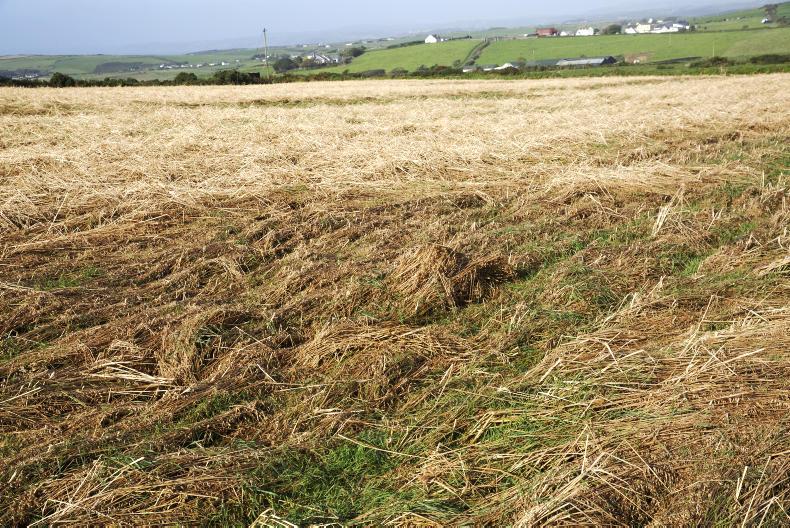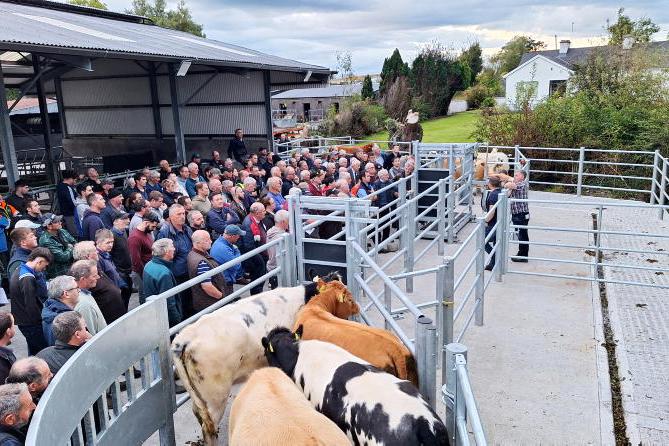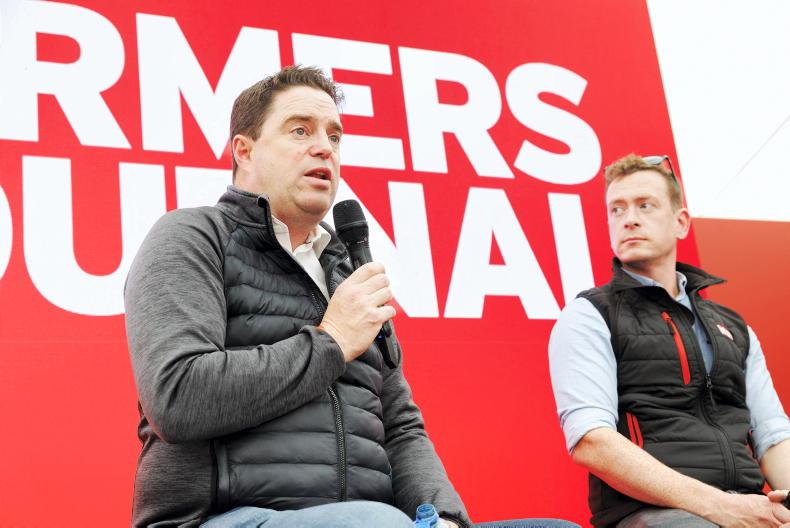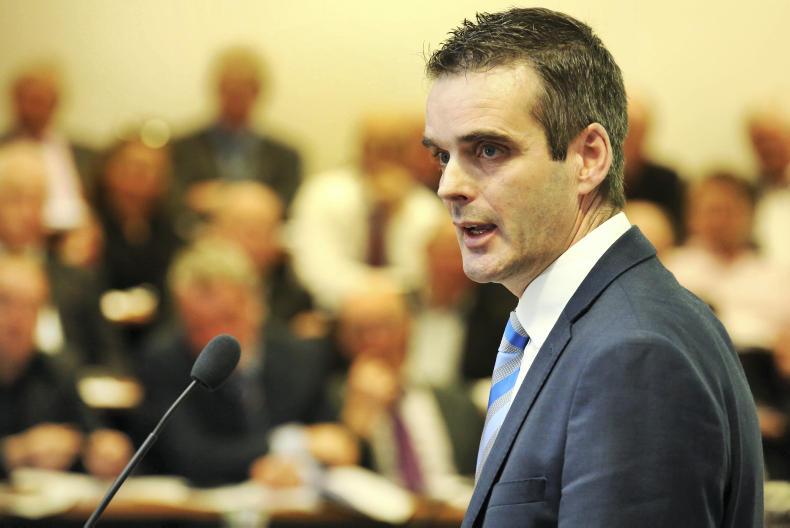The campaign to secure a crisis fund for grain farmers returned to Leinster House on Wednesday. Farmers protested outside Leinster House while a Fianna Fail private members motion was being debated in the Dail chamber.
While all cereal farmers will want to put 2016 behind them, a few hundred growers along the Cork coastline and up the western seaboard suffered catastrophic losses.
Moderate yields and poor prices meant all grain crops generated poor returns - Teagasc estimated the average net margin at -€130/ha. For the 400 or so farmers worst affected, losses were much higher.
Harvested yields of 1-1.5t/ha were little more than a salvage operation. The grain was harvested slowly through the second half of September and into October with high moisture and of poor quality.
There were stories of loads of grain stuck in tipped trailers, so high was the moisture content, incurring huge quality penalties. Prices as low as €60/t - less than half the base price - have been reported. The inability to bale up the straw crop added a further €30-40/ha of losses.
The proposal, from a group of Co Cork farmers, with full backing from IFA, is that a €5m fund be set up to offset some of the losses incurred. Eligibility for a payment, up to the permitted maximum under EU state aid rules of €15,000, would be determined by a half-dozen criteria.
These include submitting LPIS numbers for each field, full invoiced input costs for seed, fertilizer and chemicals, any contractor fees. Harvest delivery dockets specifying quantity, quality and price paid for grain would be required, to establish both yield and price losses.
The criteria originated with the Cork growers, who have met a variety of politicians of all shades recently. Jim O’Regan, one of the group’s leaders, said an appropriate date range would also be attached to the criteria list.
“Crops harvested before mid-September suffered much lower losses than those not cut until after that point” said O’Regan.
From that point on, crops completely broke down following relentless muggy and foggy conditions. Lack of the dry atmospheric conditions required for combine harvesting were at least as big a problem as actual rainfall.
The Fianna Fail motion points to an €86m underspend in the Department of Agriculture, and refers to a potential precedent from 2010, when an aid scheme was put in place for frost damage to potato and vegetable crops, following the prolonged cold snap back then.
Minister Michael Creed is bound to be quizzed on this issue when he addresses the IFA’s AGM this (Tuesday) evening. He has pointed to the €150m low-interest fund – yet to open – which he specifically made accessible to tillage farmers. It is understood that payment from any crisis fund established would preclude a farmer from applying for the low-interest loan. A sector specific TAMS is also due to open for the tillage sector.
IFA President Joe Healy contends that low-interest loans or TAMS are no use to farmers who have no money to start with. As Jim O’Regan – who says he was largely unaffected by the worst of the harvest weather conditions – says “these farmers need money in their pockets, and they need it now. If not, they will find it hard to continue trading”.
Political intrigue
The likelihood is that the Fianna Fail motion will be passed on Wednesday afternoon, although the Government has tabled a counter-motion. Fine Gael only hold 50 of the 158 seats in the Dail, Fianna Fail have 44 votes, less the Ceann Comhairle, so the arithmetic is hard to predict. Either way, a Dail vote will not put any money in farmers pockets on its own. The Minister and Department must row in behind it.
The issue was raised time and again at the IFA agm. North Cork chairman John Coughlan's intervention was telling – he comes from the Minister's own constituency. Normally, when an issue is this close to home, and the bill is a manageable €5m, you would expect it to happen. There seems to be resistance – and it's likely that it is within the Department of Agriculture. It's actually understandable, the oft-quoted precedent of the fund for potato and vegetable growers turned into an administrative nightmare, by all accounts. There is also the prospect of creating a precedent that could be followed by mushroom farmers.
There is also the reality that any Minister will be slow to deliver a scheme that the opposition can claim credit for – a particularly acute political dilemma when operating a minority government.
The IFA are adamant that some form of delivery is essential, to maintain tillage farming in those predominantly grassland counties where the worst weather struck. Without a cash injection, the few hundred farmers involved will not be able to plant this spring. There is universal sympathy for this cohort of farmers, finding a mechanism to help them now looks to be a task for the tillage forum when it next convenes.










SHARING OPTIONS